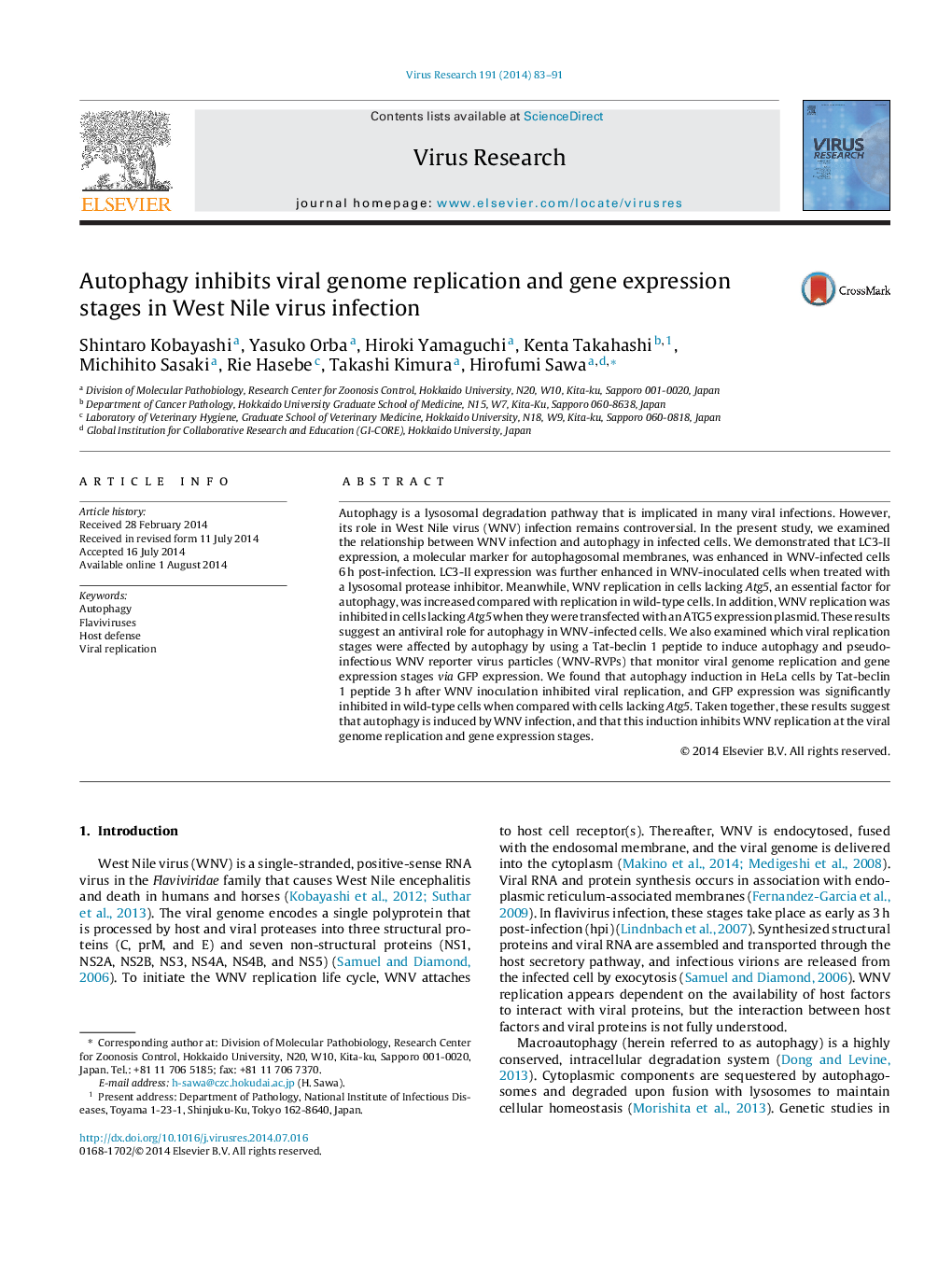| Article ID | Journal | Published Year | Pages | File Type |
|---|---|---|---|---|
| 6142343 | Virus Research | 2014 | 9 Pages |
Abstract
Autophagy is a lysosomal degradation pathway that is implicated in many viral infections. However, its role in West Nile virus (WNV) infection remains controversial. In the present study, we examined the relationship between WNV infection and autophagy in infected cells. We demonstrated that LC3-II expression, a molecular marker for autophagosomal membranes, was enhanced in WNV-infected cells 6Â h post-infection. LC3-II expression was further enhanced in WNV-inoculated cells when treated with a lysosomal protease inhibitor. Meanwhile, WNV replication in cells lacking Atg5, an essential factor for autophagy, was increased compared with replication in wild-type cells. In addition, WNV replication was inhibited in cells lacking Atg5 when they were transfected with an ATG5 expression plasmid. These results suggest an antiviral role for autophagy in WNV-infected cells. We also examined which viral replication stages were affected by autophagy by using a Tat-beclin 1 peptide to induce autophagy and pseudo-infectious WNV reporter virus particles (WNV-RVPs) that monitor viral genome replication and gene expression stages via GFP expression. We found that autophagy induction in HeLa cells by Tat-beclin 1 peptide 3Â h after WNV inoculation inhibited viral replication, and GFP expression was significantly inhibited in wild-type cells when compared with cells lacking Atg5. Taken together, these results suggest that autophagy is induced by WNV infection, and that this induction inhibits WNV replication at the viral genome replication and gene expression stages.
Related Topics
Life Sciences
Immunology and Microbiology
Virology
Authors
Shintaro Kobayashi, Yasuko Orba, Hiroki Yamaguchi, Kenta Takahashi, Michihito Sasaki, Rie Hasebe, Takashi Kimura, Hirofumi Sawa,
